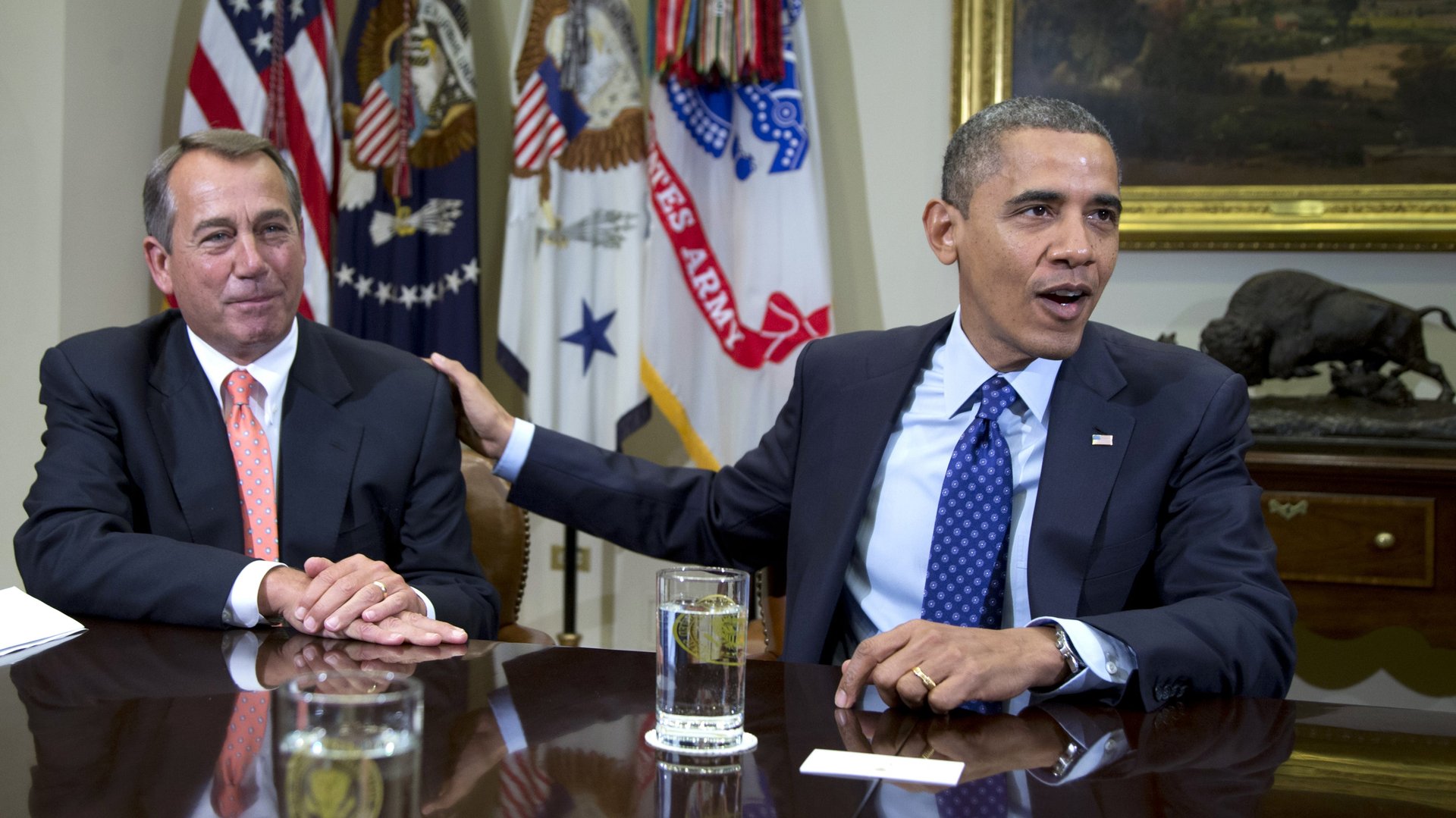Democrats and Republicans should adopt each other’s income tax plans
Democrats and Republicans, in their different ways, are equally obsessed with the top rate of income tax. Their shared neurosis is the main obstacle to breaking the deadlock over US fiscal policy and avoiding big tax increases and spending cuts that are scheduled to start on January 1st.


Democrats and Republicans, in their different ways, are equally obsessed with the top rate of income tax. Their shared neurosis is the main obstacle to breaking the deadlock over US fiscal policy and avoiding big tax increases and spending cuts that are scheduled to start on January 1st.
Democrats want the top rate to rise from 35% to 39.6%, where it stood at the end of the Clinton years, and they’d like couples making more than $250,000 to have to pay it. Republicans want to thwart that plan.
The fixation on this issue could make you think a lot was at stake. It isn’t. What’s even odder is that both parties have settled on positions that advance the other’s strategic aims better than their own. If either side knew what it was doing, and could swallow its pride, it would just let the other team win.
Democrats want the rich to pay significantly more tax. Increasing the top rate on employment income by a few points does little to that end. The really rich hardly care what the top rate of tax on wages is because wages are only a small part of their income. What matters to the typical plutocrat is taxes on investment returns (corporate profits, capital gains and dividends) and estates—as Warren Buffett recognized with his renewed call yesterday for a minimum tax on the wealthy that targets all their sources of income. The desire to erase George W. Bush’s signature tax change from the fiscal history of the United States appears to have blinded Democrats to the irrelevance of their main proposal.
But if the Democrats are dumb, the Republicans are dumber. They want to shield the rich (and everybody else) from tax increases. By fighting the Democrats’ plan, they’ve put other ideas for raising revenue into consideration—ideas that could end up exceeding the Democrats’ ambitions.
In an effort to keep a maximum 35% rate in place, Republicans have started a discussion about broadening the tax base. In the first instance this means limiting income-tax deductions. Mitt Romney proposed this during his election campaign, and the Republican Party looks willing to consider it now.
A cap on deductions could easily replace the revenue forgone by leaving the top rate at 35%, and the distributional effects would be similar too because deductions are more valuable to the better off. But suppose the spirit of base-broadening goes beyond the itemized deductions that are allowed against taxes on earnings—mortgages, state and local taxes, charitable contributions and so on—and extends also to tax preferences for capital gains and estates. Then the rich would actually have reason to worry.
More generally, a wider tax base is plainly the best place to start if your long-term aim is to extract more taxes from the economy. (Resistance to tax-rate increases is less when rates are low.) Strange that Democrats should be uninterested in this approach and Republicans disposed to favor it.